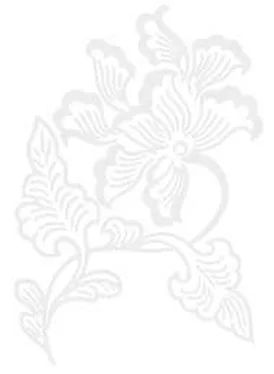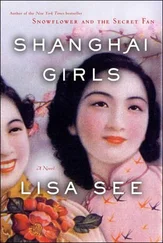Lisa See - Peony in Love
Здесь есть возможность читать онлайн «Lisa See - Peony in Love» весь текст электронной книги совершенно бесплатно (целиком полную версию без сокращений). В некоторых случаях можно слушать аудио, скачать через торрент в формате fb2 и присутствует краткое содержание. Жанр: Старинная литература, на английском языке. Описание произведения, (предисловие) а так же отзывы посетителей доступны на портале библиотеки ЛибКат.
- Название:Peony in Love
- Автор:
- Жанр:
- Год:неизвестен
- ISBN:нет данных
- Рейтинг книги:4 / 5. Голосов: 1
-
Избранное:Добавить в избранное
- Отзывы:
-
Ваша оценка:
- 80
- 1
- 2
- 3
- 4
- 5
Peony in Love: краткое содержание, описание и аннотация
Предлагаем к чтению аннотацию, описание, краткое содержание или предисловие (зависит от того, что написал сам автор книги «Peony in Love»). Если вы не нашли необходимую информацию о книге — напишите в комментариях, мы постараемся отыскать её.
Peony in Love — читать онлайн бесплатно полную книгу (весь текст) целиком
Ниже представлен текст книги, разбитый по страницам. Система сохранения места последней прочитанной страницы, позволяет с удобством читать онлайн бесплатно книгу «Peony in Love», без необходимости каждый раз заново искать на чём Вы остановились. Поставьте закладку, и сможете в любой момент перейти на страницу, на которой закончили чтение.
Интервал:
Закладка:
( 2 0 1 )
chid, now fourteen, playing for my mother and the aunts in the Lotus-Blooming Hall. She was a pretty girl, and I had a momentary flash of pride that her bound feet had turned out so well. Sitting next to her was my mother. Only nine years had passed, but in that time her hair had gone gray. Deep sadness filled her eyes. When I kissed her, she shivered and rattled the locks hidden in the folds of her gown.
Bao’s wife’s face was pinched with the sadness of infertility. She hadn’t been sold, but her husband had taken in two concubines. They too were infertile. The three women sat together, not fighting but mourning what they could not have. I didn’t see Bao, but I had to consider that maybe I’d been wrong about him. He’d been perfectly within his rights to sell off these women, but he hadn’t. These past years, I’d expected—wanted?—
this adopted stranger to ruin my family through bad management, gambling, and opium. I’d envisioned the estate dwindling and Bao selling off my father’s book, tea, rock, antiques, and incense collections. Instead, these things had been built up and enhanced. Bao had even replaced the volumes my mother had burned. I hated to admit it, but Bao had probably found my poems when he’d read that book on dam building. But why had he sold them? No one needed the money.
I went to the ancestral hall. Grandmother and Grandfather’s ancestral portraits still hung above the altar. I was a ghost, but I paid obeisance to them. Then I bowed to the ancestor tablets for my other relatives. After that, I went to the storage room where my tablet had been hidden. I couldn’t go in, because the corner was too sharp, but I saw a dusty edge of it on a shelf covered with mouse and rat droppings. Even though my mother mourned for me, I’d been forgotten by the rest of the family. I wished none of them ill, but there was nothing for me here.
Exile . . .
I had to go somewhere. The only other place I’d been was to Gudang Village during the Festival of Hungry Ghosts. The Qian family had fed me for two years. Maybe I could find a place with them.
I set out as night covered the land. Fireflies flitted about me, lighting my way. It was a long walk when I wasn’t driven by hunger and had only my regrets for company. My feet hurt, my legs ached, and my eyes burned when dawn broke. I reached the Qian home as the sun hit the apex of the sky. The two eldest daughters worked outside under an awning, tending trays of silkworms that ate their way through freshly cut mulberry leaves.
The next two daughters were in an open shed with another dozen or so girls, their hands in steaming water, washing the cocoons, and pulling and ( 2 0 2 )
spinning the silk floss into thread. Madame Qian was inside the house, preparing lunch. Yi, the child I’d first seen as a baby in her mother’s arms, was now three years old. She was a sickly little thing, thin and pale. She rested on a low wooden platform in the main room, where her mother could watch her. I sat down next to her. When she wiggled, I put a hand on her ankle. She giggled softly. It didn’t seem possible that she would reach seven.
Master Qian, although it was hard for me to think of this farmer as a master of anything, came in from the mulberry grove and everyone sat down to lunch. No one gave anything to Yi; she was just another mouth to feed until she died.
As soon as the meal was done, Master Qian motioned to his oldest daughters. “Hungry worms do not produce silk,” he snapped at them.
With that, they got up and went back outside on their big flapping feet to resume their work. Madame Qian poured tea for her husband, cleared the table, and carried Yi back to the platform. She pulled out a basket and handed the child a piece of cloth with a needle and thread tucked into it.
“She doesn’t need to learn to embroider,” the girl’s father said scornfully. “She needs to get strong so she can help me.”
“She’s not going to be the daughter you need and want,” Madame Qian said. “I’m afraid she takes after her mother.”
“You were cheap, but you’ve cost me a lot. Only girls—”
“And I’m no help with the worms,” she finished for him.
I shivered in revulsion. It had to be hard for a woman of such refinement to have fallen so low.
“With Yi this way, I won’t be able to marry her out,” he complained.
“What family would want a useless wife? We should have left her to die when she was born.”
He took a last noisy sip of tea and left. Once he was gone, Madame Qian gave her full attention to Yi, showing her the stitches to make a bat, the symbol of happiness.
“My parents were once members of the gentry,” Madame Qian said dreamily to her daughter. “We lost everything in the Cataclysm. For years we wandered as beggars. I was thirteen when we came to this village. Your baba’s parents bought me out of pity. They didn’t have much, but don’t you see? If I’d lived so long on the road, I had to be strong. I was strong.”
My despair grew deeper. Did every girl suffer?
“My bound feet kept me from working at your father’s side, but I’ve brought him prosperity in other ways,” Madame Qian continued. “I can ( 2 0 3 )
make bedding, shoes, and clothes so fine they can be sold in Hangzhou.
Your sisters will do physical labor their entire lives. I can only guess at the pain in their hearts, but I can do nothing for them.”
She bowed her head. Tears of shame dripped from her eyes and stained her plain cotton skirt. I couldn’t swallow any more sorrow. I slunk out of the house and away from the farm, embarrassed for my weakness and afraid of the harm I might do this family even unwittingly, when they were so miserable already.
Exile . . .
I sat down by the side of the road. Where could I go? For the first time in years I thought of my old servant, Willow, but there was no way for me to find her. Even if I could, what could she do for me? I had thought her a friend, but in our last conversation together I’d seen that she’d never felt the same about me. I hadn’t had a single friend in life, and in death I’d hoped to be included in the circle of lovesick maidens. I’d tried to be a good sister-wife to Ze, and I’d failed there. My coming here was a mistake too. I was not part of the Qians nor were they a part of me. Maybe I’d been in exile my whole life . . . and death.
I had to find somewhere to live where I’d be assured I wouldn’t hurt anyone. I returned to Hangzhou. For several days, I scouted along the lakeshore, but too many other spirits already inhabited the caves or had found comfort behind rocks or nestled in the roots of trees. I wandered aimlessly. When I came to the Xiling Bridge, I crossed over it and onto Solitary Island, where Xiaoqing had been banished long ago to keep her safe from a jealous wife. It was quiet and remote, a perfect place for me to languish in my sorrow and regret. I searched until I found Xiaoqing’s tomb, hidden between the lake and the small pond where she’d contemplated her frail reflection. I curled in the tomb’s doorway, listened to the orioles sing to one another in the canopy of trees above me, and brooded about what I’d done to an innocent wife.
ove r th e ne xt two years, however, I was rarely alone. Almost daily, women and girls left their chambers and came to Xiaoqing’s tomb to con-secrate the spot with wine, read poems, and talk about love, sadness, and regret. It seemed I was just one of hundreds of women and young girls who suffered for love, who thought about love, who desired love. They weren’t as deeply affected as the lovesick maidens—like Xiaoqing or me—
( 2 0 4 )
who’d died from too much qing, but they longed to be. They each wanted the love of a man or fretted about the love of a man.
Читать дальшеИнтервал:
Закладка:
Похожие книги на «Peony in Love»
Представляем Вашему вниманию похожие книги на «Peony in Love» списком для выбора. Мы отобрали схожую по названию и смыслу литературу в надежде предоставить читателям больше вариантов отыскать новые, интересные, ещё непрочитанные произведения.
Обсуждение, отзывы о книге «Peony in Love» и просто собственные мнения читателей. Оставьте ваши комментарии, напишите, что Вы думаете о произведении, его смысле или главных героях. Укажите что конкретно понравилось, а что нет, и почему Вы так считаете.












